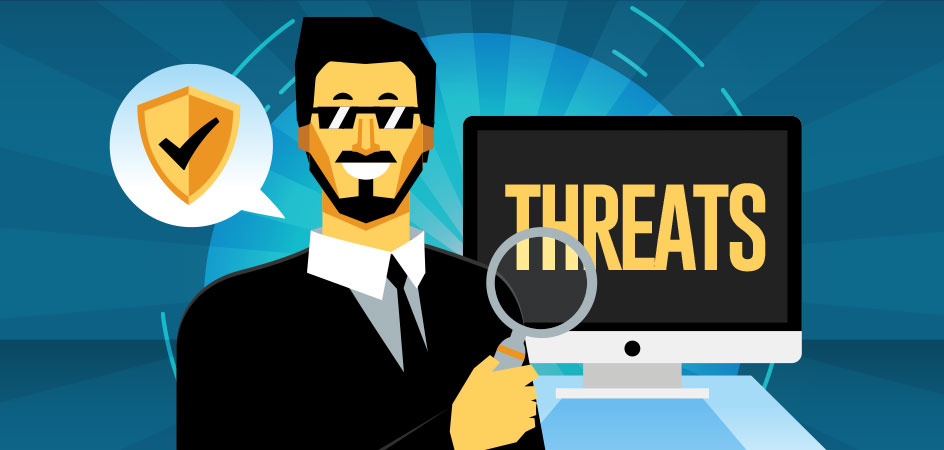
9 Core Responsibilities of an IT Security Manager
Posted by Walid Abou-Halloun Date: Jun 17, 2018 1:00:50 AM
Choosing the right IT security manager could now decide the fate of your business.
Cybersecurity issues will cost businesses an estimated $2 trillion by 2019. Even so, companies still struggle to devote enough resources to their own security.
The key lies in smart recruiting.
Putting the right person in charge of your cybersecurity could protect your business from a major incident. To find that person, you need to know what you’re looking for.
Below, we’ve put together nine key cybersecurity responsibilities.
1. Refresh Own Knowledge
Your cybersecurity manager is only as good as their most recent knowledge.
Cybercrime becomes more sophisticated every day. As tech improves, even day-to-day business operations develop new vulnerabilities.
The growing sophistication of cyber attacks is why an IT security manager needs a regular refresh of their knowledge to stay current with the latest security techniques. They need to know what bad actors are doing and what technology your company can deploy to stop them.
In short, you’re looking for more than qualifications. Commitment to continued learning should form part of the cybersecurity job description. Look for someone who knows how to stay updated.
This is a joint responsibility. You’ll also need to provide the means for them to stay current by providing access to training courses or conferences.
2. Update Technology
Keeping knowledge current is only half the battle. The other half is making sure your company is up-to-date.
For that, you need someone who can create and deliver update projects with low disruption. They’ll know how to keep a business running while overhauling hardware and software security.
Update projects are tasks that demand a thorough understanding of the tech involved. But, they also involve having a good grasp of the business impact. You don’t want a complete shutdown whenever it’s time to roll out a patch.
The first major revision will always be the most painful. For that, you need someone with the confidence to coordinate a company-wide project. A project on this scale can also be demanding on the budget, so you need someone who knows how to get the most bang for the company buck.
Once your systems are up to standard, your cybersecurity manager needs to monitor hardware and software for major updates. They’ll also need to look out for future-proofing possibilities.
3. Develop Rigorous Procedures
Strong policies and procedures form a major foundation of cybersecurity. A good policy turns cybersecurity from a niche concern into the company culture.
The point of your policies and procedures is to cover every eventuality in which cybersecurity could impact your business. It means no one has to come up with on-the-fly solutions to problems.
Your cybersecurity manager should know how dangerous unforeseen problems are. They should know how to create and document policies that read well even for laymen. Your staff will encounter these policies every day, so they need to understand them.
Strong procedures could also save your company in the event of a major incident. They’ll allow you to react quickly to risk and reduce an incident’s impact on your company and your customers.
4. Communicate Across Teams
A good IT security manager needs to communicate across teams to create a company vision of cybersecurity. They need to help build cybersecurity into your company culture and work with other departments to ensure they follow IT policy.
Your IT security manager isn’t just a manager of their own team. They’re a liaison across the company, working with heads of departments to ensure a unified cybersecurity vision. They act as the point of contact for any concerns in the field.
5. Be Aware of Threats
A business does best when it knows itself, and cybersecurity is no exception to that rule. The perfect cybersecurity package is one tailored to your business.
You can’t deploy a plan customised to your company’s needs without someone to manage it. Your IT security manager will identify threats and vulnerabilities, and come up with solutions.
A security manager knows to look for these threats both in company policies and cybersecurity news. They’ll have the in-depth understanding of your business that will equip them to create the perfect solutions for you.
Many businesses are completely blindsided by a cyber attack. Your manager should know exactly what kinds of threats you face. With that knowledge, you can undertake preemptive measures, and react quickly if an incident occurs.
Threats evolve all the time. Cybersecurity managers need to be in touch with the industry to be able to predict problems before they impact your business.
6. Ensure Compliance
The threats posed by cybersecurity issues is gaining greater attention as technology develops.
Companies working with private data already face intense regulation, whether it’s HIPAA or the EU’s GDPR. More regulations will come with time. Those companies who fail to meet these regulations face enormous fines, on top of the damage to their reputations.
A cybersecurity manager needs to maintain an encyclopedic knowledge of the regulations that apply to their industry. They need to audit your systems to ensure full compliance. They’ll also need to ensure compliance with any new projects your company undertakes.
Your security manager can clarify the regulations that apply to your business. Many acts aren’t written in plain English. You might find yourself in violation of a rule because of a misunderstanding.
This is one of the most taxing cybersecurity responsibilities, because of the minutiae involved. The ability to explain complicated rules separates the good from the great information security managers.
7. Champion Cybersecurity
Cybersecurity isn’t the sexiest aspect of a business. It’s not budget-friendly, it interferes with day-to-day business, and it’s tough to get right.
That’s why it’s so important for your IT security manager to champion cybersecurity. Someone needs to fight in its corner because in reality cybersecurity could be the Achilles heel of your business.
Your cybersecurity manager should fight for awareness, resources, and budget. They should hammer home the idea that everyone in your business is responsible for IT security to some degree. They need to be the one making cybersecurity an accessible topic for the rest of your team.
This ranges from company-wide emails to arranging training sessions for teams. Whatever form the communication takes, the goal is to keep cybersecurity at the forefront of the company’s day-to-day activities.
It takes a strong personality to drive engagement with cybersecurity. You’re not looking for the quiet computer geek. You need a people person who knows how to work with teams outside their own, and with staff at all levels of the company.
8. Track Risk
As any project manager knows, tracking and reporting are key elements of success.
Your cybersecurity expert should know how to track threats to your business in a logical, consistent way. Often, this means creating a reporting system that allows the logging and monitoring of issues.
Your business will never be 100% free of cybersecurity threats.
You could have hundreds of outstanding issues. Without a way to track them, these issues end up lost.
A strong reporting system allows anyone in your company to highlight cybersecurity risks.
Protecting your data is the responsibility of everyone in the company. The more accessible your methods of tracking risks are, the more effective your security manager is.
Building a risk tracker should form a key part of your company’s defense if anything goes wrong. Your security manager can show that your company took all the possible steps to avert the incident.
That could prove crucial where client data is under threat. Without this, you’re open to public criticism and even financial penalties.
9. Build an Overview
One of the more subtle (but most important) cybersecurity responsibilities is maintaining a high-level view of cybersecurity throughout your business.
Your IT security manager is the person in the proverbial crow’s nest. They have a complete overview of your business and the wider world. That allows them to coordinate all aspects of your business with cybersecurity in mind.
From this level, they can develop campaigns, plug holes, and report to senior managers regarding the present state of your company’s cybersecurity.
This is the secret ingredient that turns scattershot cybersecurity solutions into a holistic company culture. Your expert will develop a high-level strategy to keep your whole operation safe in the digital age.
Choosing the Right IT Security Manager
There’s no denying that cybersecurity managers have a lot to juggle. You need an IT security manager who can switch between all these various tasks. Now that you know what to look for, you can be sure to choose the right person for the job.
Want a scoop on smarter recruitment? Be sure to visit our resources.




